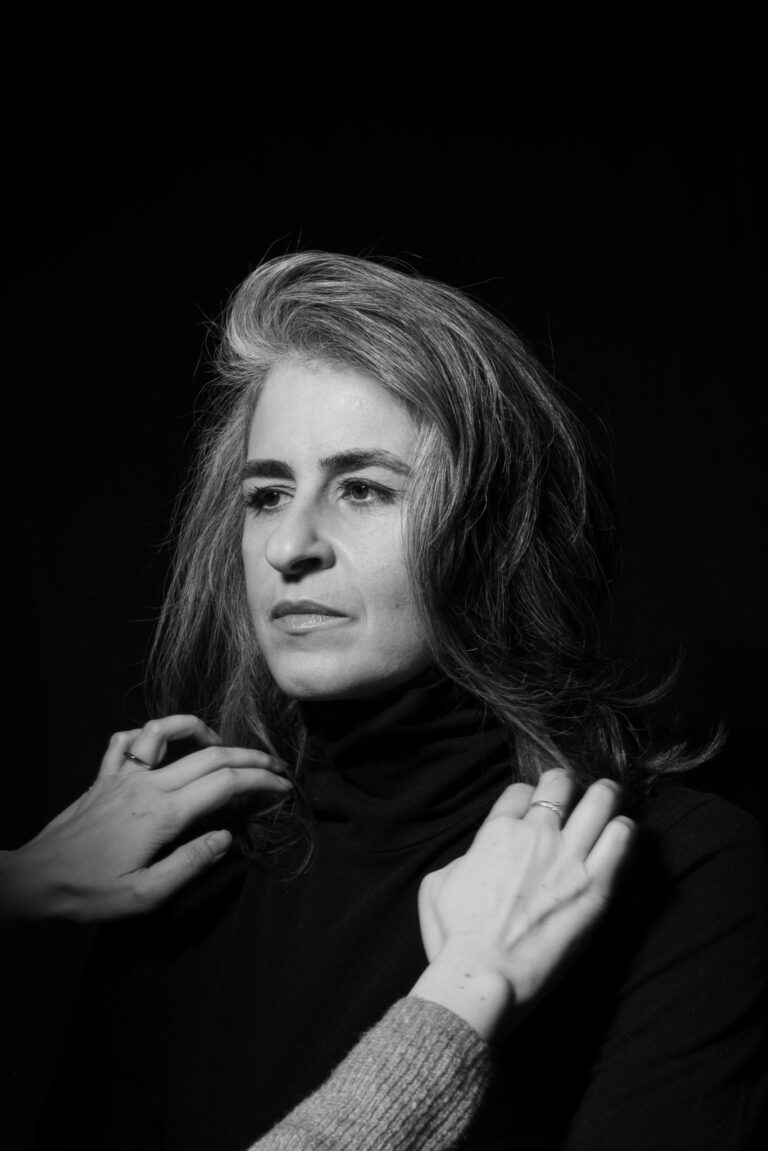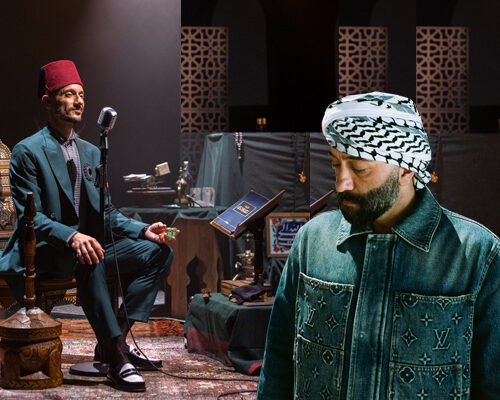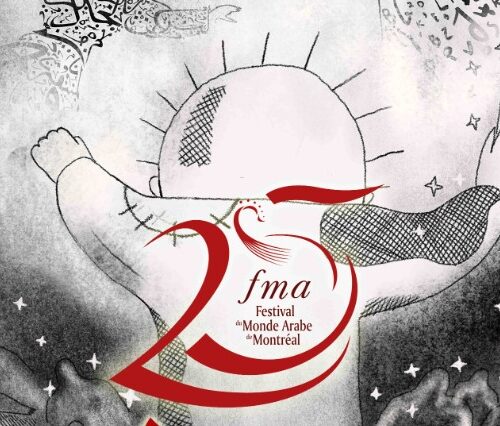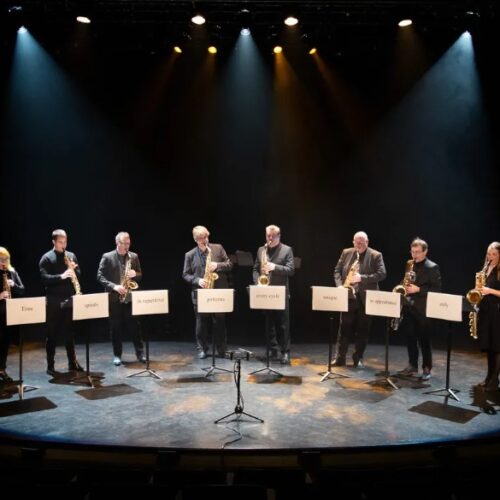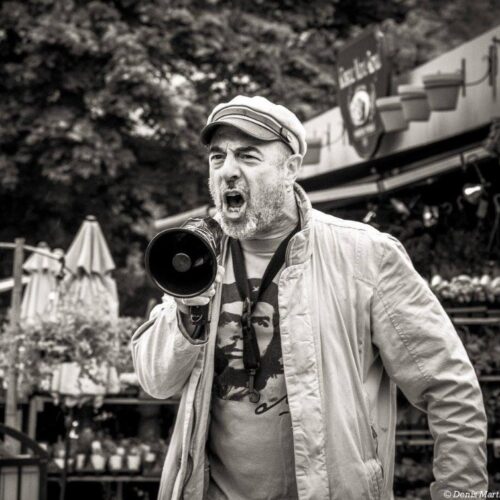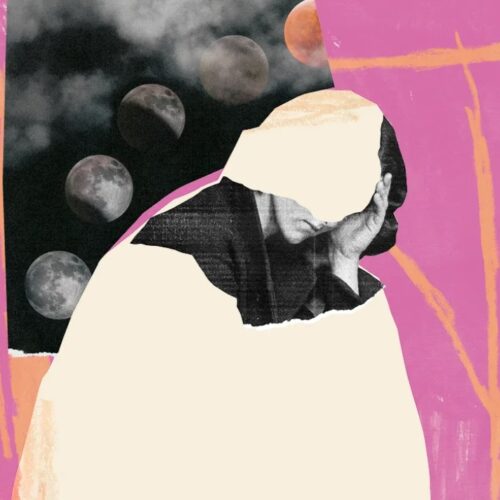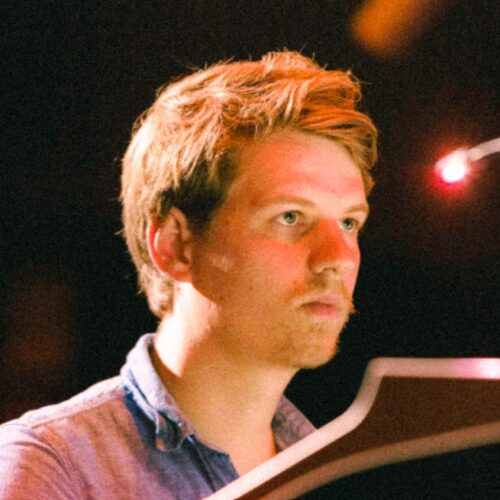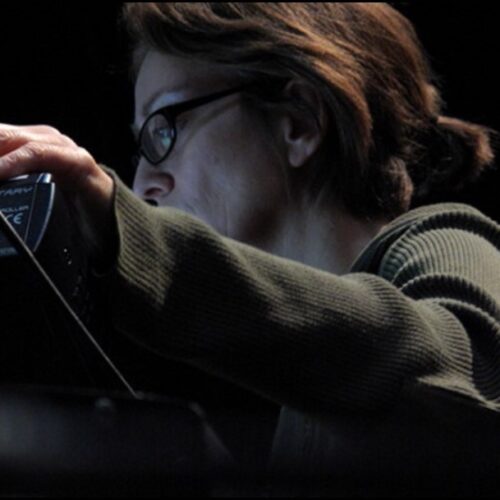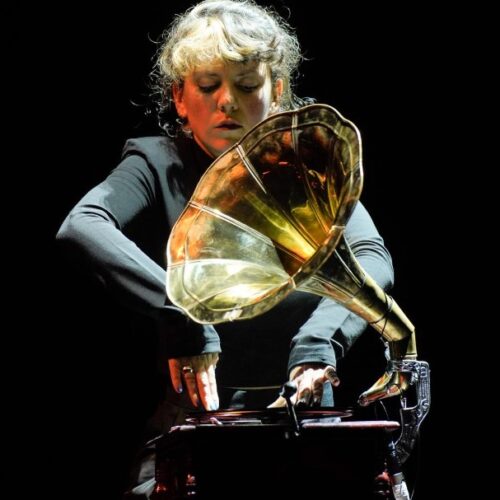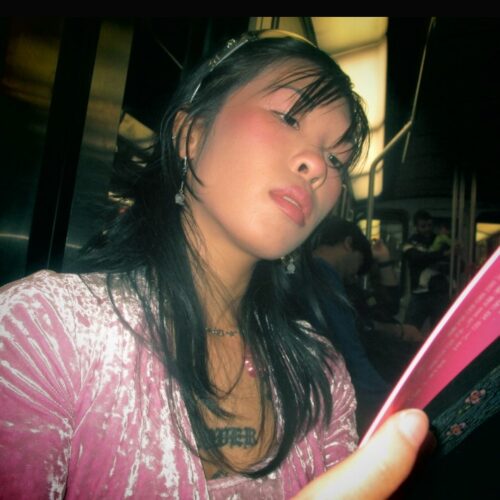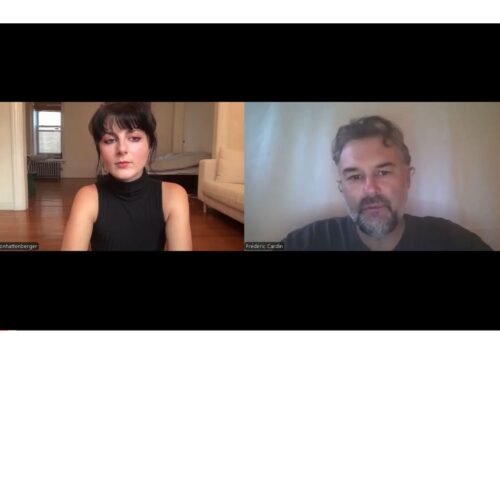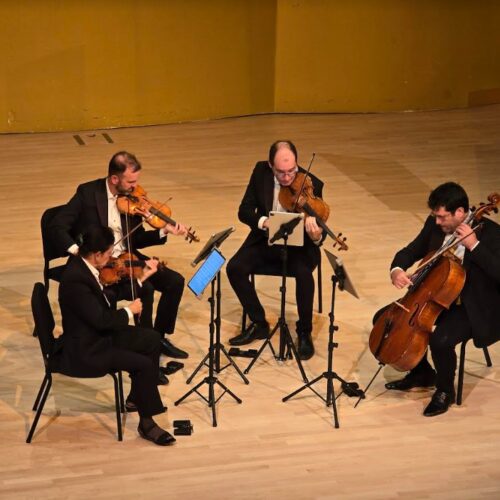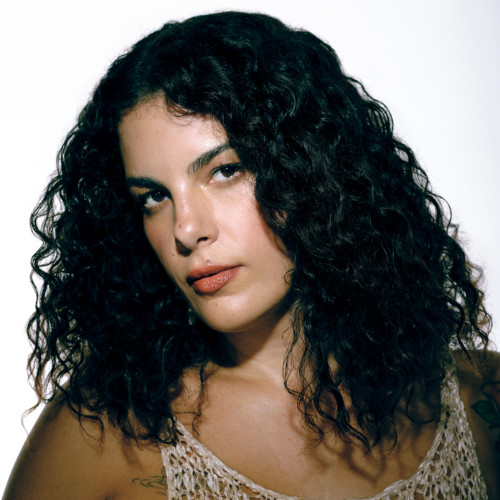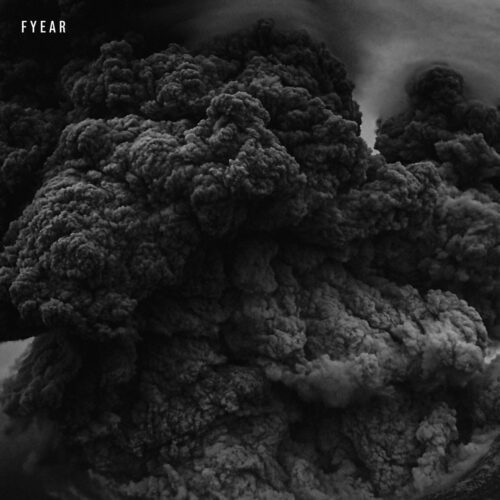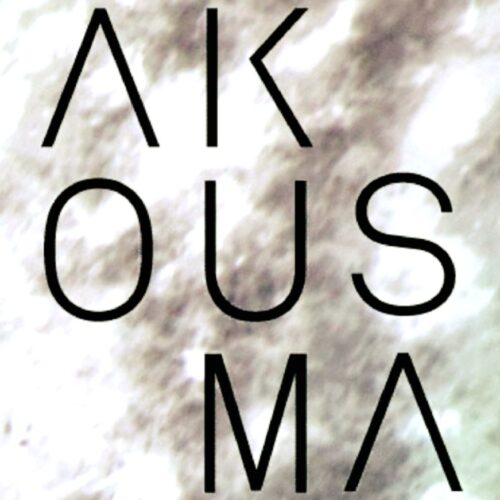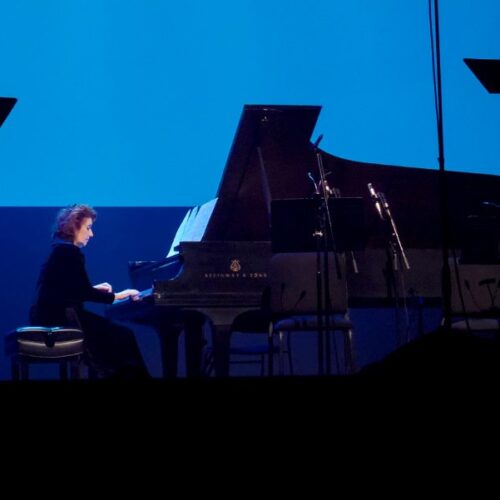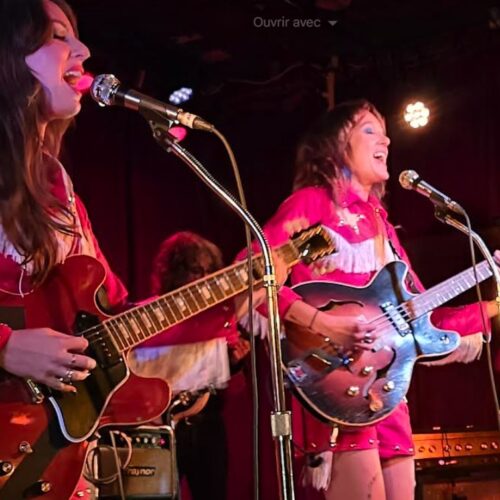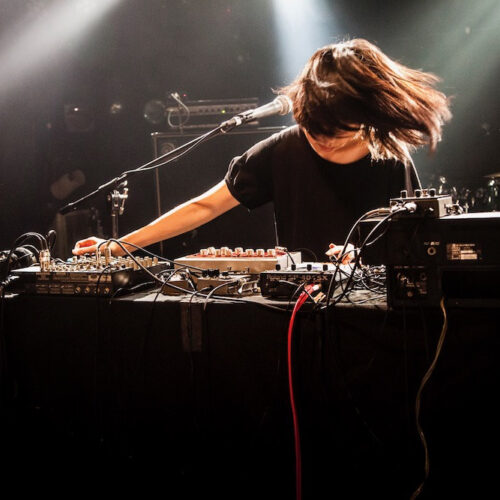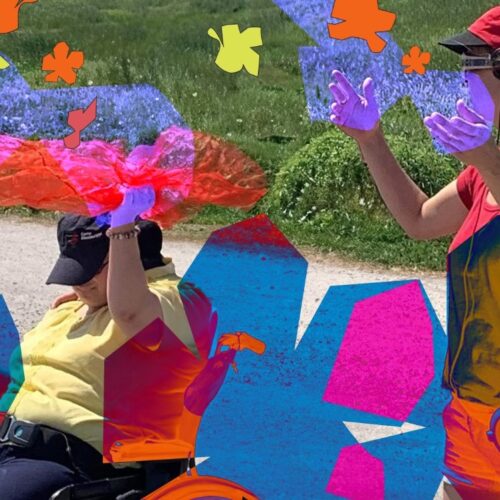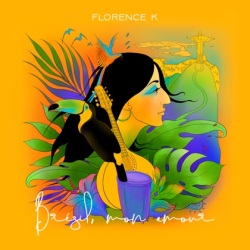Additional Information
Do we still need to introduce Misstress Barbara, a true icon of the Montreal techno scene? For over 27 years, she’s been thrilling crowds the world over with her fine selection of groovy, hard-hitting dancefloor beats as a DJ and producer. A woman of many talents, she is also an airplane pilot, boat captain, sailing instructor and entrepreneur – she has set up her own chocolate factory, Chocolats Barbon – yes, nothing less! You can catch her DJ set hat at Piknic Electronik, for the 21st year running (!), on Labor Day, Sunday September 3. Local DJ Manu will be opening the ball. A ritual not to be missed!
Photo credits : Annie Rossano
PAN M 360 : You were born in Italy, where you spent the first years of your childhood. What musical memories do you have from this time?
Misstress Barbara :Yes, I was born in Italy and moved to Montreal when I was 7 and a half. It’s funny because recently, I was in the car listening to Julio Iglesias and my girlfriend said, “What are you doing listening to that? I told her I was feeling a bit nostalgic these days. These are childhood memories, I remember that on Sunday mornings, when I woke up, my parents would play Julio Iglesias vinyl very loudly in the house, while my mother did a bit of housework.
And what else do I remember? The waltz. If I know all the Strauss pieces, it’s because they were played loud in the house, on vinyl, always on vinyl. And yet, that’s not at all why I have a passion for vinyl. It’s just a coincidence!
I also remember Italian music from the 1980s. When I go back to Italy on vacation, whenever there’s a song from the 1980s playing, I sing it. I know all the lyrics because they’re childhood memories.
PAN M 360 : What musical genres accompanied you as a teenager once you arrived in Canada?
Misstress Barbara : I continued to listen to Italian music. My father has passed away now, but my mother still watches RAI on TV and listens to Italian radio, so when I’m at her place, I still listen to Italian music. But when I was a teenager, I had my first Walkman, my first money to buy music, I bought cassettes of The Beatles, The Police, Rolling Stones, Iron Maiden. I was really a rocker. I didn’t like current music when I was young, I didn’t like Madonna and Michael Jackson at all, it had to be rock.
The interesting thing is that I came back to it later. When you produce music, you go and get samples, often of disco. When I started producing music, I went back and got samples of Michael Jackson and other 1980’s music to put into my music.
PAN M 360 : How did electronic music come into your life?
Misstress Barbara : Being a real rocker, I didn’t really know much about underground electronic music. I’d hear what was playing on the radio and think it was disgusting. Back then, it was eurodance like Corona – This is the rythm of the night. Then one night, a friend dragged me to the Octogone, a nightclub on Gouin Boulevard. I didn’t like discos, so I was bored. It’s important to remember that this was the era of good underground house music, which was starting to come out of the underground and into the mainstream. For example, Hardrive – Deep Inside, Robin S. – You Got to Show Me Love or CeCe Rogers.
A guy looks at me and says, “Do you like house music? I say, “What do you mean, house music?” He replies, “I’ve seen you move your knee when house music is playing. You should try going to raves and gay bars, you’ll like the music there”
All that to say, I went to my first gay parties in bars, and I found the music so good! At the time, it was the Squeeze nights at Métropolis, there was the Royal, the Kox. It was really crazy, it was another world. Then I went to my first rave. I fell in love with this underground music. I said I wanted to be a DJ, that’s what I wanted to do, that’s it.
PAN M 360 : What was the scene like in the 1990s, when you began your career in Montreal?
Misstress Barbara : There was a magic to raves, and the parties were no exception. Squeeze nights at Métropolis (MTELUS) on Thursday nights were gay nights that had nothing to do with a show or concert. I had a fake ID to get in because I wasn’t 18 yet. I was hallucinating, there were people in costumes, there were drag queens, it was normal. And above all, I really got into the music.
Then at some point, as I was having so much fun at parties, I realized that someone was putting on the music. As I’m a very curious person, I always want to go further. This has been the case with DJing, production and many other things. For example, I started sailing, but that wasn’t enough. I became a captain, but that wasn’t enough, so I became a sailing instructor. I started making chocolate as an experiment, then finally I have my own company from bean to bar. It’s in my nature.
Once I realized that there were DJs behind the music, I started watching them work, what they were doing with their hands, the vinyl they were putting on. It’s what made me want to become a DJ.
PAN M 360 : How did you get into DJing?
Misstress Barbara : A friend of mine showed me the basics. I was studying film and I was involved in everything, including sound editing, so I didn’t need anyone to explain the wiring to me. Not without difficulty, I found my own turntables, then started practicing 10, 12 hours a day. I lived with my parents, who couldn’t stand listening to all that music. I’d go to school, come back and mix. Sometimes I mixed before going to school, that’s all my life was. No one can show you how to mix, it takes a beat and practice. When you take the record off, it’s all about feeling and musicality. If you’ve got it, you’re a good DJ. If you don’t, you do it mechanically, without any feeling. There are a lot of people like that now, especially because it’s the computer that mixes for you. But I really learned by myself.
PAN M 360: When did you start producing? Was it a natural and logical next step in the development of your DJ career?
Misstress Barbara: It’s worth pointing out that, at the time, if I had bookings as far away as Japan, it wasn’t thanks to Facebook, there weren’t even e-mails, I received faxes! The reason I got as far as Japan was that I quickly realized that if I wanted to tour the world, I had to have records out there, so I started producing.
Although today, I love producing for what it is, making music, aat the beginning of my career I said openly that I only produced music because that’s what it took to make a name for myself and get booked all over the world. But it’s always been a war for me because what I like to create in the studio is not what I like to play as a DJ. So if you create something, it has to be your calling card. If I’m a techno DJ I’d have to produce techno, and then I produce techno, but it takes a more effort compared to producing pop, something melodic. I’ve made 2 pop albums and that’s put a spanner in the works because people buy them, they say, “What’s this? It’s not Misstress Barbara”, because as a DJ, I play big techno. Do I want to change my DJ style? No. It’s always been this big paradox throughout my career, and even today when I have to go into the studio to make techno music I find it difficult, but I know that’s what’s expected of me.
PAN M 360 : A few months ago you posted a video of your performance at I Love techno 2002 on social networks. Is there some kind of nostalgia behind this publication?
Misstress Barbara : Yes, a lot of nostalgia, because first of all, the 2000s were really my greatest years. Then I started to slow down, and that happened at the same time as my pop albums. In fact, I was the one who felt I’d come full circle. I went around the world 43 times, returning to the same festival, not that I didn’t like it, but in the end, it was always the same thing. I earn a good living, but I need to feel that I’m feeding my soul, and I felt that it was getting a bit repetitive. I started writing songs and released albums, my first in 2009, which confirmed that I wanted experiment with other forms of music, without stopping being a DJ. But unfortunately it’s such a purist environment that if you do other things, it hurts your DJ career, and then it slows down on its own.
It’s also a form of nostalgia because I was young and carefree. There’s nostalgia because back then, everything was on vinyl. Now everyone’s a DJ, you don’t need to be talented. The computer finds the next song for you that matches the key, the style and does the beatmatching. Frankly, it discourages me. And then there are people who have a career because they have millions of followers they’ve bought. My own agent said to me, “Barbara, there are promoters who won’t book because you don’t have enough followers”. There’s a nostalgia for an era that’s no longer the same.
PAN M 360 : It’s your 21st participation to Piknic !
Misstress Barbara : Piknic is really special. I can play in front of 40,000 people in Andalusia, no problem. And yet, in Montreal, my hands shake before I play! Because it’s home, because it’s my audience, because it’s where I live and because I never want to disappoint any of my audiences, never, but disappointing at home would be fatal for me. It’s important to please my fans here more than anywhere else. Over the years, I’ve developed something really special with Piknic. I find the audience different, in fact, sometimes I even recognize some of the faces over the years, which makes it really special for me and keeps me going. It’s not just about going back to the event, it’s also about knowing that there’s an audience out there waiting for you.
TICKETS PIKNIC ELECTRONIK MTL #13: MISSTRESS BARBARA / HOUSE OF YOUTH: FORREST – September 3rd, 4pm
